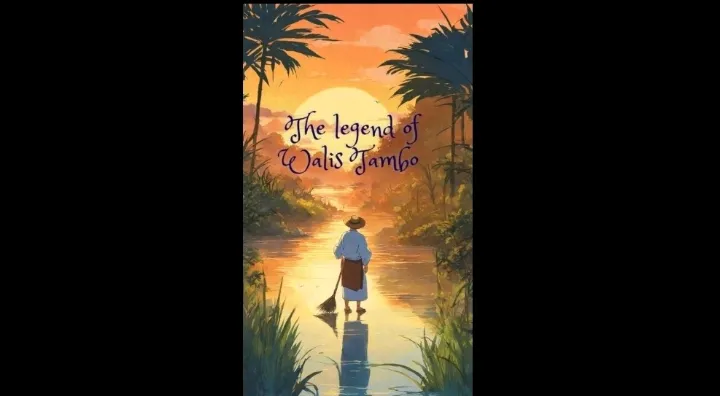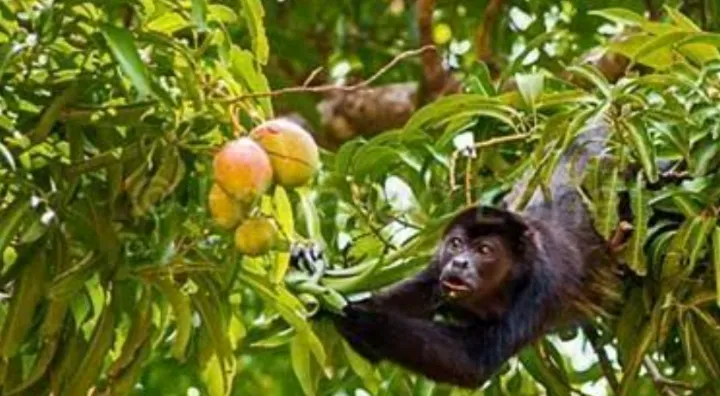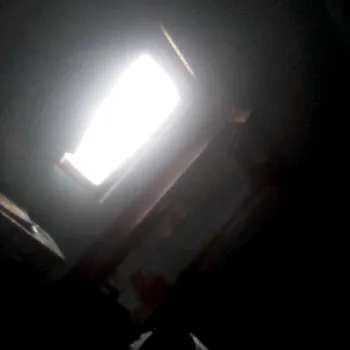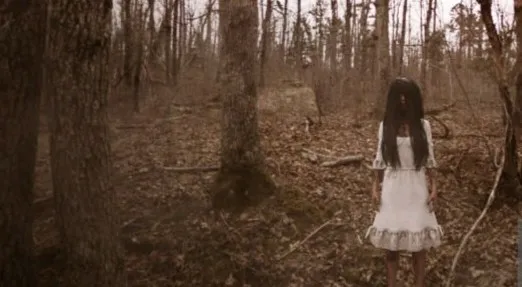The Legend of Walis Tambo (Whisk broom)
THE LEGEND OF WALIS TAMBO
In the southern part of Luzon there is a small town known for its vast field of phragmites reed or also known as talahib and coconut trees it is the Walis town. Coconut is their primary source of income; Walis people produce oil, vinegar, walis ting-ting, and lumber from it, and use its leaves for walls, roofs and designs. The houses’ roofs were commonly made of coconuts leaves with various patterns of weave and some were thatched roofs made of talahib but mostly made of coconut leaves; however talahib are mostly considered as weeds. As coconut is considered a tree of life every single part of it is being used, particularly its ting-ting being used as walis to clean the houses’ backyard and its inside. Their houses were elevated and have bamboo flooring. It cleans the house efficiently. The town became a more prosperous place in southern Luzon under the leadership of Ambo or also called Tatang Ambo.
As time went by as Walis town became a producer of various coconut products across the country their houses became more modern and made of concrete and metals as their roof. Now the Talahib (phragmites reed) have completely no purpose to the town. Walisian people gathered regarding the non stop growing vast and faster of the talahib in the marshes and it reached the community’ backyard, plantation and farm land.
“ What are we going to do with these talahib? My plants are all dying, these weeds basically stealing the nutrients for my vegetable”
“ It seems like even if we have to cut and clean our plantation everyday it's not enough to get rid of the talahib, what are we going to do? We can not even cut them all at once, our man power is not enough”
“ Let me think of a solution, and I’d like to hear your suggestions too next time. Let's discuss it another time”- Tatang Ambo replied with assurance to his people.
They burned some of the talahib nearby the marshes and they kept burning the other areas, yet it did not stop the talahib from prospering, it grew rapidly and aggressively. The town is filled with smoke, ashes and a combination of sand dust from marshes. You can feel the eerie vibe that covers the atmosphere of the town.
Four nights have passed since that day another meeting is being held as the problem becomes worse and keeps on multiplying. The people were getting sick. The dust and ashes from marshes flew to their cemented houses and walis ting-ting cannot completely remove the dust unlike when they have the elevated houses with bamboo flooring.
“achoo, achoo ,ough, ough, achoo, despite I’m getting sick because of the burning talahib and it ashes and sand dust from marshes, it's still fine I can endure it but now its getting worse — our coconut trees were being affected, the trees are dying and its fruits are rotten, we’re losing our business, our future!’’, the cries of the sick woman to Tatang Ambo.
Tatang Ambo and his people are greatly in distress. The burning of the talahib has stopped due to its ashes greatly affecting the health condition of the Walisian. The climate is getting extremely high which is the main reason why the coconut trees are dying and the plants are dried up and did not grow, yet the weather has less effect on the talahib. The town of Walis is now in a chaotic state, it lasted for more than a year. With the downfall of the primary source of living, the whole town is now slowly experiencing poverty and causing respiratory diseases and hunger. Tatang Ambo and the council ran out of solutions to their town problems.
Tatang Ambo as the leader of this town is in great agony and he just stayed in his house. His last hope now is to ask help from heaven, he constantly prayed days and nights and fasted for months. In one tight night in the middle of his sleep he saw himself cutting talahib and making a whisk broom out of it that he had never seen before. When he woke up he made his way on his kubo on the top of the hill in Walis town. He did exactly what he saw in his dream. Ambo writes every step of making a whisk broom in his notebook and its purpose with full hope for his town.
Days passed and his people noticed his disappearance in the town; they gathered in search of him and lastly they went to Tatang Ambo’s special place in Kubo and they found the whisk broom along with the notebook leaving without a trace where he went far. With the help of a whisk broom that was made by Tatang Ambo the Walisian came up with the ideas in reviving their town. They are able to resolve the ashes/ dust dirt problems in their concrete houses with it and it spreads to the nearby towns with the same problem. They cut the talahib to create more whisk brooms and traded to the other towns. They mass produce whisk brooms as the demand increases and Talahib is new gold for them. Time has passed and the town was able to go back to its prosperity.
To honor Tatang Ambos’ life and his dedication to the people of Walis town. They called it Walis T’Ambo, and until it became known as walis tambo. Walsian people believe that Tatang Ambo was in the great hand of God as an exchange for the life of his people.
Tatang Ambo left his town and the possibility of another chance of a prosperous lifestyle as his freewill and promise to God. He continued his journey outside the Walis town, served God in a way that he knew, and he gained more knowledge about leadership throughout his journey.
Even to this day, every household still has the whisk broom that Tatang Ambo crafted. Walis tambo continues to be one of the most essential and useful tools for cleaning dirt and dust in every household, whether the house has a concrete or bamboo flooring.
End
I submitted this story for school activity❗❗
© ugma
Related Stories













